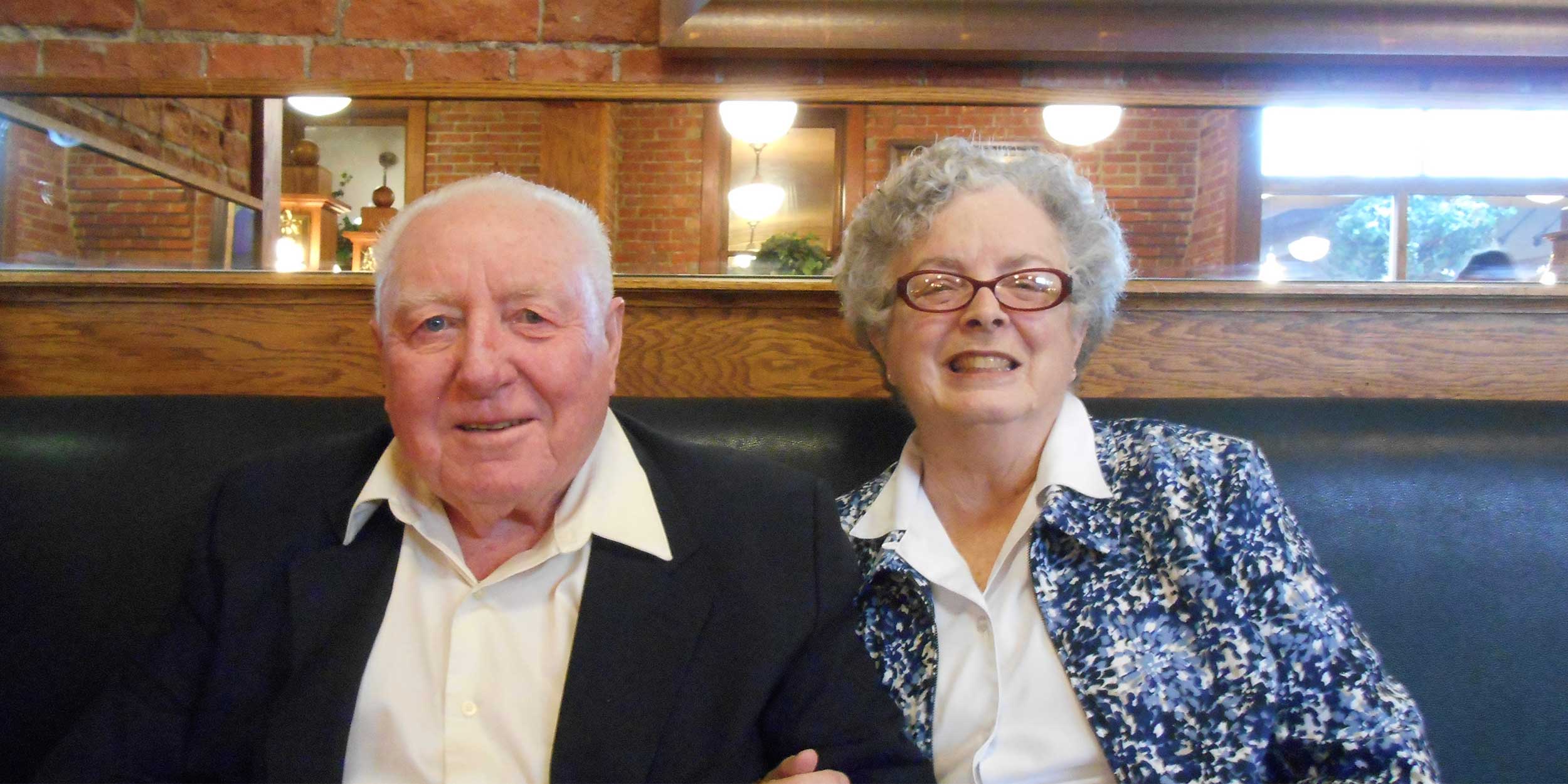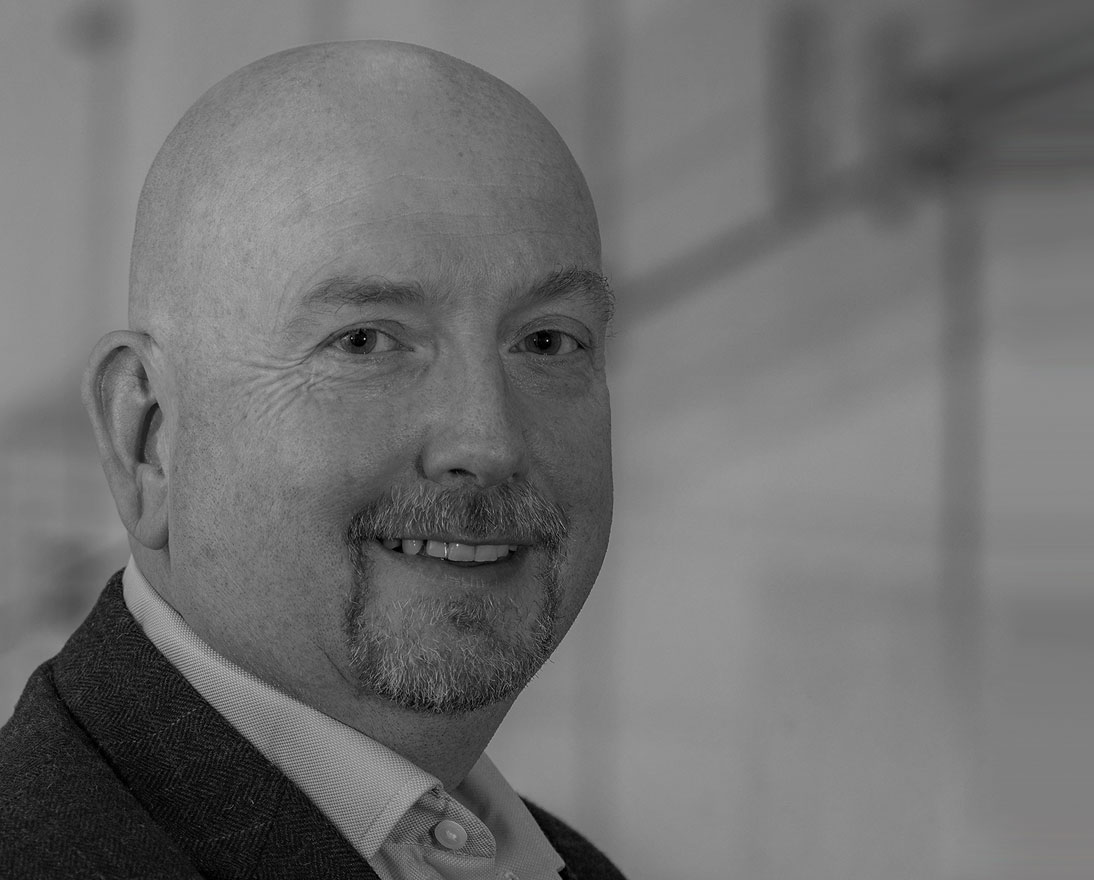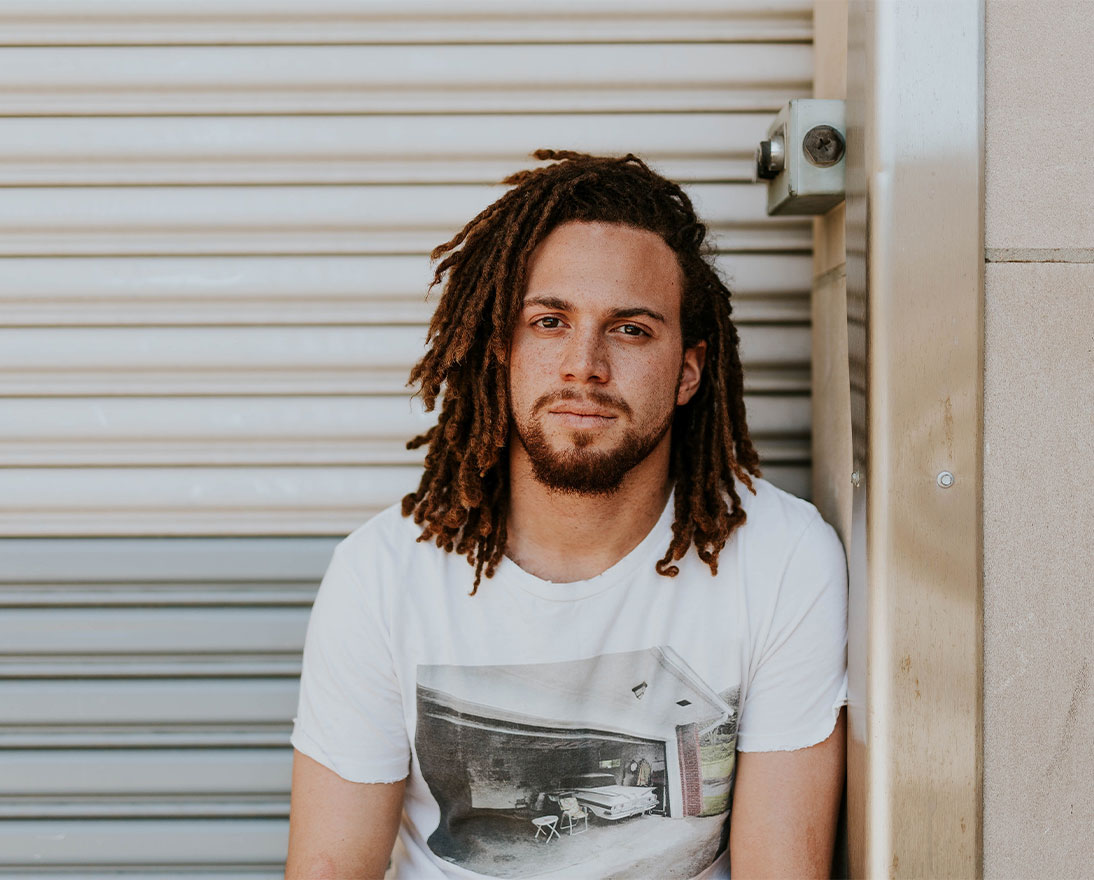Fighting shame and stigma: My father’s battle with alcohol addiction
PeopleArticleJune 17, 20228 min read
“Ignorance, judgment and shame were frequent. Empathy was in short supply.” Zurich North America employee Joann Bronson received little support when her father suffered with alcohol addiction. She blames stigma.
Last summer, Joann Bronson’s father George passed away. He was 80 and had been fighting cancer and dementia.
In the final 10 years of George’s life, he was also battling alcohol addiction. Yet, despite the detrimental impact the addiction had on George and his wife Gail (both pictured above), very few friends and family members offered support.
“The reaction to dad’s colon cancer and dementia included compassion, understanding and support. But why couldn’t you also have had this compassion and empathy about his alcohol addiction?
“Where was the basic dignity and respect that every person deserves? My dad just got sick like millions and millions of other people.”
Joann felt frustrated and hurt. She believes the lack of support her family received for over a decade was due to the stigma associated alcohol addiction. It’s why she wants to share her story so that more people can learn about the disease.
“At a minimum, I would like people to acknowledge that his addiction was an illness. My father was sick. Let’s start there.”
The American Medical Association first regarded alcoholism as a disease needing treatment in 1956. And since 2013 in the U.S., it has been considered a medical condition called “alcohol use disorder” with mild, moderate and severe sub-classifications. The National Institute on Alcohol Abuse and Alcoholism describes it as “an impaired ability to stop or control alcohol use despite adverse social, occupational or health consequences.”
Combating the stigma
Despite its medical classification, there remains a stigma attached to people suffering from alcohol addiction. A common stereotype is of someone who lacks willpower, while deliberately engaging in bad behavior.
“Addiction is not about self-control or discipline. It’s not a choice,” says Joann. “It upset me when people would say: ‘your dad has a choice.’ No, he doesn’t!”
But stigma can be dangerous. “Stigma is the biggest killer out there,” says former U.S. Surgeon General Jerome Adams. “Stigma kills more people than cigarettes, than heroin, than any other risk factor. Because it keeps people in the shadows, it keeps people from asking for help, it keeps good people from being willing to offer help.” And that was the issue Joann’s father faced: very few people were willing to offer help for his addiction.
George was born and raised in Montana. With a degree in petroleum engineering, he embarked on a 45-year career in the oil and gas industry that took him around the world, many times. The family eventually settled in Montana as George opened his own consulting company. He also loved playing baseball and hockey, as well as hunting and fishing.
“He loved to work, loved the challenge and complexity of his job and had a great career,” says Joann. “But when he retired at 67, I think he lost his sense of purpose. He had been working since he was a newspaper delivery boy as a kid and had worked in a copper mine at night to pay for college. Work was core to his identity, and he missed having a career with complex problems to solve, leading people and the responsibility of being a senior executive.”
George increased his use of alcohol as he tried to cope with the changes in his life. He would drink at home or go out to a pub and drink – he never tried to hide his addiction. “He’d have a binge episode about once a week,” says Joann.
“Sometimes he would fall and hurt himself. He hit his head a few times and ended up in the emergency room. He would have died if my mother wasn’t there. But he wouldn’t say anything the next day despite having stitches in his head.”
The situation got worse when George developed colon cancer for the first time in his early 70s. “It slowed him down physically and I think it depressed him.”
George’s alcohol addiction was also having a damaging effect on his wife Gail. With their three children located across the U.S. – Joann was in Illinois, her brother Frank in Colorado and her sister Lynn in Idaho – Gail was the primary caregiver. Joann and her siblings traveled monthly to provide help and spend time together as a family. Joann even put her career aspirations at Zurich on hold so she could devote more time to her family.
“My mother is strong, resilient and adaptable and did an amazing job. Of course, she was also overwhelmed and tired and needed support and help. I noticed how people would ask me how my father was doing, but almost never asked about my mother. But my siblings and I made a terrific team. We leveraged our strengths, educated ourselves and adapted just like our parents. While we didn’t always agree on what to do, we always listened to each other and found a way forward.”
Intervention
After many attempts to help her father with his illness, including trying to get help from the medical community, Joann turned to an addiction intervention specialist in Montana. She soon learned that due to George’s age and his cancer treatment it was unsuitable to send him to a rehabilitation center. She also knew that George would be highly unlikely to participate in a group therapy discussion like Alcoholics Anonymous. Instead, they turned to intervention.
“We knew we had to intervene and so the intervention specialist joined us to plan out and have a discussion with my dad. I remember we did it on Easter Sunday. We talked to dad about the changes we had seen in him and how worried we were. We listened to him and talked with him about what we were going to do to help,” says Joann.
The intervention was helpful, George worked hard on limiting his consumption of alcohol. But after fighting off colon cancer, it returned in his late 70s. He was also beginning to develop dementia. A diagnosis of moderate level dementia meant George and Gail moved into an assisted living community. After about six months, George was moved to the memory care part of the facility as his dementia deteriorated. This reduced the pressure and caring responsibilities on Gail for the final two years of George’s life and helped George to reduce and ultimately stop his drinking. Today, Gail lives in Colorado and is doing well. She is closer to her children with just a 15-minute drive to Joann’s sister and an hour to her brother.
“We became a stronger family through our experience, we talk openly and proactively about what’s going on and we all know that we can count on one other to help.”
A great man
Despite wanting to share her father’s story about his alcohol addiction, Joann is also keen to remind people of what a great man he was. “My dad is not his addiction,” she says. “When he walked into a room, people paid attention to him. He had a real big personality and he loved people.
“He was a great storyteller, problem solver and loyal friend. He was the first person I wanted to tell when I got a new job or was going to move to a new city or if I needed help. He taught me the importance of hard work, empathy and loyalty to friends. My dad very much believed that everybody matters. He would never give up on anybody.” Sadly, for George, he did not receive the compassion, empathy and help that he had taught his children were key human traits.
“Why do we help people with certain diseases but not others?” asks Joann.
Unfortunately, there is still a stigma related to mental health or neurodiverse challenges that can lead to social isolation or stop people seeking or offering help. But we can overcome it.
As Jerome Adams explains: “The way we overcome stigma is by sharing our stories as people who have mental health issues of our own, sharing our stories as people who have overcome mental health challenges, and sharing our stories as people who have reached out to help and embrace others who had mental health challenges.”
This was Joann’s story about her loving father and a great man: George Bronson. But sadly, a story about stigma too. She hopes it will help to lift the shame and stigma surrounding alcohol addiction.



